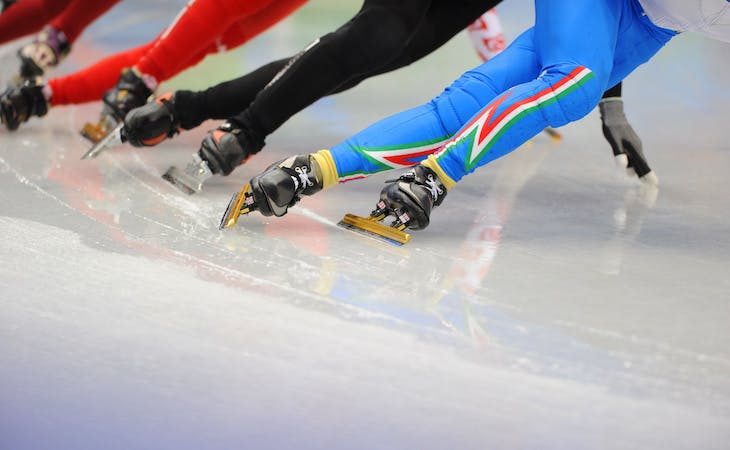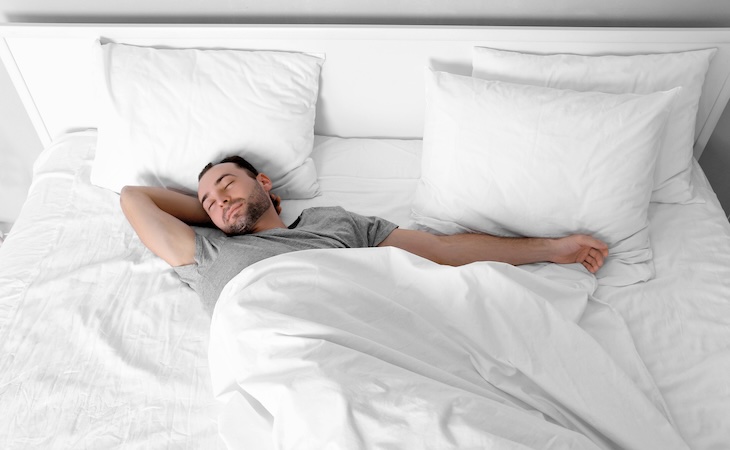It’s a fact: Sleep is key for athletic performance, something that’s undoubtedly true for professional athletes competing at the highest level. But there’s something else that’s true: Sleep is important for everyone, even if you aren’t a professional athlete.
Top athletes have made it their job to know how to achieve optimal levels of sleep so they can perform at their very best. These tips are invaluable for everyday people to know as well, so they too can experience the benefits of high-quality sleep.
The importance of sleep for professional athletes
“Sleep for athletes is a lot like recharging a battery, mentally and physically,” says Emery Lehman, a medal-winning speed skater. “If we’re not fully charged by the next day, our training can really struggle, and if this continues for a few days or weeks, the fatigue will add up and results can really struggle. For a sport where the difference between winning a medal and not winning a medal can be less than a tenth of a second, you can see why this can be so crucial.”
Personal trainer Kollins Ezekh agrees.
“Sleep provides vital recovery time for both the brain and body,” he says. “If you don’t get enough sleep, you are sacrificing your performance and ability to function daily.”
While athletes may benefit from sleep-promoting activities like working out regularly and practicing good nutrition, they do face their fair share of challenges when it comes to getting sleep.
“The largest challenge for me is shutting my brain off at night,” Lehman says. “Hopping from bed to bed while traveling can also have its challenges, but I’ve been to enough places where as long as the bed is clean and it’s quiet enough, then I can generally fall asleep. Having roommates is tough too, sometimes, especially if you’re on opposite schedules.”
Ezekh adds that vigorous late-night workouts can be too energizing and delay athletes’ ability to sleep.
Even if you don’t deal with this particular set of challenges, we all have our own hurdles when trying to get good sleep: too much coffee during the day. A snoring partner. Anxiety that keeps you up at night.
If you’d like to learn how to fall asleep just like the pros do, read on for helpful tips from our experts.
How to sleep like a professional athlete
Move your body during the day
To achieve that amazing sleep you’ve been hoping to experience, Ezekh recommends moving your body every single day—and you don’t necessarily have to run a marathon or ski down a mountain.
“It can be as simple as a walk,” Ezekh says. “Daily physical activity can help you fall asleep faster and help you get into that REM sleep phase.”
You can also choose to take your physical activity beyond a walk too.
“Try and keep a regular workout routine,” Ezekh says. “Science shows the benefits include improved mental health and less stress, which often leads to better sleep.”
Focus on nutrition
It’s fair to say that every professional athlete pays attention to their nutrition, something that results in better sleep that you can do as well.
In general, be sure to include plenty of whole, fresh, nutrient-dense foods in your daily diet. Additionally, Ezekh emphasizes the importance of avoiding caffeine or heavy or fatty meals close to bedtime, which can hinder your ability to fall asleep.
Be open to trying new things
As an athlete, Lehman is willing to try novel and new tricks to help him sleep and maximize his performance.
Calling them “some odd things I do for sleep that most people probably don’t,” he says he actually tapes his mouth shut when he sleeps to promote nose breathing, a habit he picked up from the book Breath: The New Science of a Lost Art by James Nestor.
Another atypical thing Lehman does to achieve better sleep?
“I sleep in an altitude tent,” he says, “even though I already live at 4,300 feet to help increase my red blood cell count for future races and competitions.”
The moral of the story? Be willing to try new things, even if they seem foreign to you. Who knows? You might discover the surest thing to help you sleep.
Create an optimal bedtime routine
“Develop a good bedtime routine,” Ezekh says. “At first, set easy goals you’ll be able to follow through—maybe it’s waking up at a certain time each day or not working from the bedroom. As soon as you’ve established these as habits, you can revise your goals and incorporate more habits to boost your sleep routine, just like how you would adjust your weight or speed goals in a workout.”
Wind down
“Take time to wind down before bed with calming activities that signal to the brain that it’s time to rest,” Ezekh says.
This is exactly what Lehman does before he hits the pillow for some shuteye.
“To get optimal sleep, I try and read or do something relaxing before bed,” he says. “I stay away from screens and do a nice breathing routine to try and shut my brain down. Other than that, I also try to stretch for 20 to 30 minutes before bed, and I have a very comfortable pair of pajamas I sleep in.”
Aim for quality, not quantity
Although Lehman aims for at least 10 hours of sleep per night, he has found over the years that the quality of sleep is more important than the amount of sleep.
“I still try and get a lot of sleep—but I’ll just freak out a little less if I know I got some good quality sleep,” he shares.
The bottom line: Whether you’re competing the next day or simply want to get through a meeting without yawning, it’s always helpful to practice good habits and achieve that quality sleep that benefits everybody.
Want more sleep advice from athletic pros? Check out our Q&A with Cyril Grayson, a professional football player, to find out how he prioritizes sleep during the season.








